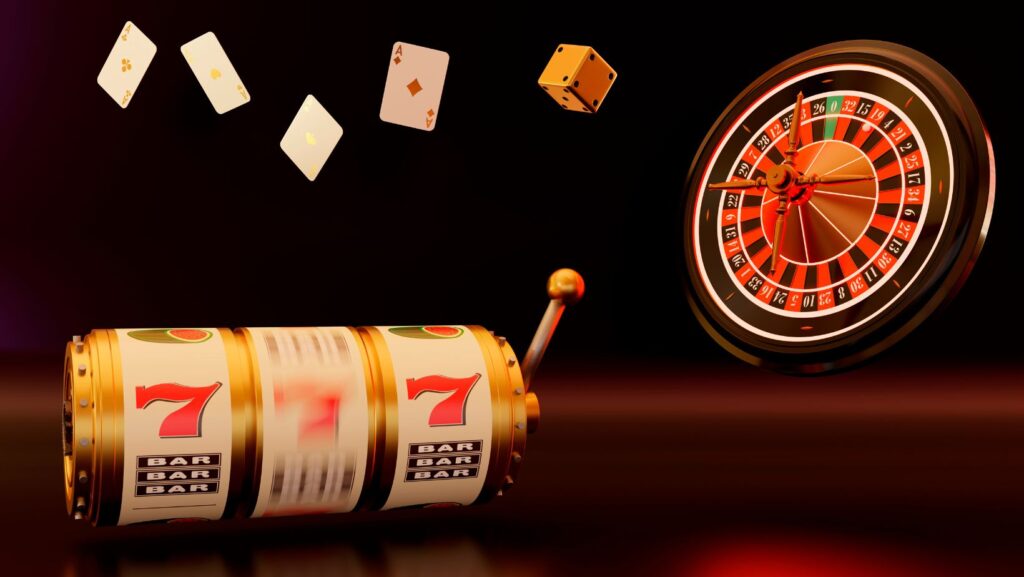You’ve probably heard the saying, “The house always wins.” It’s the golden rule of gambling, and casinos use it to their advantage, ensuring that over time, their odds will prevail. However, this doesn’t mean players can’t walk away with a win—or at least have a better chance of winning more often. In this article, we’ll explore strategies to improve your odds, dispel some gambling myths, and help you approach casino games with a smarter, more strategic mindset.
Whether you’re playing at a brick-and-mortar casino or trying your luck online, these strategies will give you the knowledge to play with more confidence. If you’re also exploring modern gambling options like no verification casinos, where anonymity and fast withdrawals are prioritized, knowing how to manage your gameplay and apply the right strategies becomes even more essential.
Understanding House Edge: The Key to Playing Smart
Before diving into specific strategies, it’s important to understand one crucial concept: the house edge. Every casino game is designed with a built-in advantage for the house, which ensures that, over time, the casino will make a profit. This doesn’t mean that players can’t win in the short term; it just means that, on average, the house will always have an edge.
The house edge varies depending on the game. For example, in American Roulette, the house edge is about 5.26%, while in blackjack (if you’re using basic strategy), the house edge can drop to around 0.5%. The lower the house edge, the better your chances of winning, which is why understanding how each game works is critical.
Bankroll Management: The Unsung Hero of Gambling
One of the most important strategies, and one that often gets overlooked, is bankroll management. Many players focus on mastering specific games without first learning how to manage their money effectively. This leads to them running out of funds quickly, even if they’re playing well.
The golden rule is never to gamble with money you can’t afford to lose. Set a budget for yourself before you start playing and stick to it. Divide your bankroll into smaller portions, which will allow you to play for a longer time and withstand some of the natural losses that come with gambling. Always decide in advance how much you’re willing to spend, and if you hit that limit, walk away.
Also, consider implementing the 50/30/20 rule: use 50% of your bankroll for low-risk games, 30% for moderate-risk games, and 20% for high-risk or high-reward games. This way, you’re not blowing your entire bankroll on a single bet, and you have room to recover from losses.
Blackjack: Basic Strategy Beats Luck
Blackjack is one of the few games where your decisions can directly influence the outcome. With a house edge that can drop to around 0.5% if you’re playing with perfect basic strategy, blackjack gives players some of the best odds in the casino. The key to winning consistently at blackjack is to learn basic strategy—a mathematically proven system that tells you the best possible move for every hand you’re dealt, based on the dealer’s up-card.

Basic strategy covers whether you should hit, stand, double down, or split. By sticking to these rules, you reduce the house edge and put yourself in a better position to win. It’s important to remember that blackjack is a game of skill, and while the element of luck still plays a role, the more you practice and apply basic strategy, the better your chances will be.
For advanced players, card counting can further reduce the house edge. While it’s not illegal, casinos frown upon card counters and may ask you to leave if they suspect you’re using this strategy. However, for online players, card counting is ineffective, as digital shuffling is random after each hand.
Poker: Outwit the Opponents, Not the House
Poker is unique because it’s not played against the house but against other players. This means the house edge is minimal, as the casino typically makes money by taking a small percentage (known as the rake) of each pot. This levels the playing field, giving skilled players the chance to come out ahead over time.
Success in poker relies on understanding the psychology of your opponents, reading their tells, and knowing when to be aggressive or fold. Unlike games of pure chance, poker rewards players who can strategically outmaneuver their competition. Study the game, learn different playing styles, and always be aware of your position at the table. Bluffing, while an exciting tactic, should be used sparingly and only when you have a solid read on your opponents.
Slot Machines: Know When to Walk Away
Slot machines are often the first choice for beginners, and while they’re simple to play, they come with some of the highest house edges in the casino. Slots are pure chance, and there is no strategy that can significantly improve your odds of winning. However, there are still a few ways to approach slots wisely.

First, choose machines with higher payouts, often referred to as “loose” slots. These machines generally have better payout percentages than others. Look for slots with a return-to-player (RTP) percentage of 95% or higher. It’s also a good idea to stick to your bankroll limits and know when to walk away, especially if you’re on a losing streak. The flashing lights and exciting sounds can make it easy to keep playing, but discipline is essential.
Roulette: Choose the Right Bet
Roulette is another popular game, but the house edge can vary greatly depending on the version you’re playing. European Roulette offers a house edge of 2.7%, while American Roulette, with its additional double zero, has a much higher house edge of 5.26%.
To improve your odds, it’s better to stick to the outside bets, such as red/black, odd/even, or high/low. While these bets pay out at even money, they give you almost a 50/50 chance of winning. Avoid the temptation to place inside bets on specific numbers or groups of numbers, as these have lower odds of winning, despite their higher payouts.
Conclusion: The Odds Are in Your Hands
While the house always has an advantage, players who take the time to understand the games, manage their bankrolls, and apply the right strategies can improve their chances of walking away with a win. Games like blackjack and poker allow for skillful play, while games of pure chance, like slots and roulette, require smart betting and self-control.



